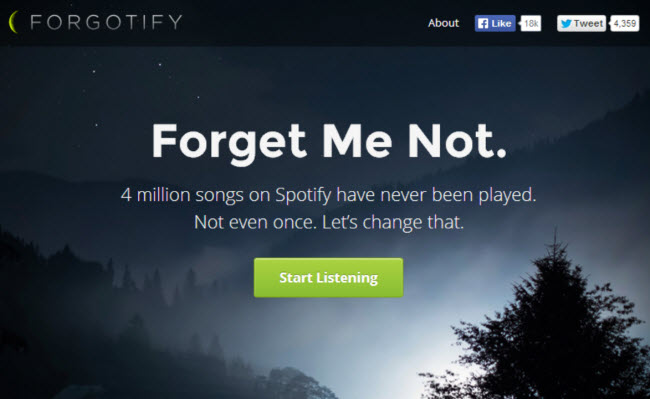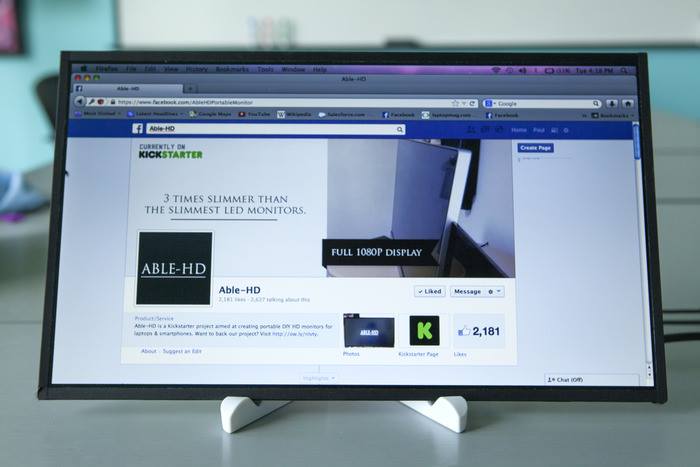
Google starts checking YouTube views to ensure they're real
There was once a time when the popularity of a webpage was measured by the hit counter that was featured prominently on it. Thankfully these days are long gone, but there is a new type of counter.
There are few sites that don’t try to take full advantage of social networks, and many online articles -- including here at BetaNews -- include links to share content on the likes of Facebook and Twitter. It's easy for all to see how many times something has been shared, but this reveals little about the number of actual views this has translated into. But there is one place where the hit counter lives on: YouTube.

Google releases details of FISA data requests -- for what it's worth
Trying to claw back its reputation of not being evil, and riding the wave of public interest in the surveillance activities of the government, Google releases some additional details about the government data requests it has received. Just last week, the Department of Justice announced that companies would be permitted to reveal more information about the requests made of them. Google has now updated its Transparency Report to include statistics about Foreign Intelligence Surveillance Act (FISA) requests.
Until recently, Google and other companies had been blocked from revealing any information about FISA data requests, causing them to group together to file a lawsuit in a bid to overturn this barrier. Today's report released by Google follows on from last week's agreement with the DoJ and includes details of requests made under the Foreign Intelligence Surveillance Act. For advocates of government transparency this sounds like a victory for freedom of information, but sadly it amounts to very little.

Google Cast SDK opens up Chromecast to developers -- more apps on the way!
Today, Google launches the developer preview of Google Cast SDK, allowing for the development of apps for the company's plug-in-and-forget-about-it streaming unit. In a post on the Chromium Blog, Engineering Manager John Affaki, explains that developers will find it easy to make existing mobile and web apps ready for use with Chromecast as the SDK allows for easy integration. In addition to the Chrome extension, the SDK is also available for Android and iOS.
The lack of new and exciting apps that offer Chromecast support has partly contributed to the fact that Google's streaming device has not really caused the explosion of excitement that it should have done. Google will be hoping that by making the SDK available, developers will start to integrate the API into existing apps that are suitable for taking advantage of second screen casting.

Forget Spotify -- discover never-before-heard music on Forgotify
Like the internet itself, Spotify is a fantastic resource, but it is one which remains somewhat unexplored. There are darker reaches that are yet to be visited by anyone, and who knows what sort of gems might be lurking there waiting to be discovered? You could spend endless hours trawling the length and breadth of what's available online in the hope of stumbling across something new and exciting. You could do that, or you could get someone else to do the hard work for you.
With Forgotify, the idea is simple. It's a streaming music site, but not quite like the others you may have tried. Any music you find through Forgotify is guaranteed not to have been listened to by anyone else on Spotify. Spend a little time playing random tracks and you could find something truly amazing -- of course, you will undoubtedly have to endure a load of absolute drivel, but there will be some utterly delightful tracks in every genre as well.

Able-HD wants to put a monitor in your bag
As long ago as 2003 Microsoft research found that having a second monitor made people up to 50 percent more productive.
However, having two screens is fine for those of us tied to a desk but isn’t exactly practical for people on the move.

The Internet of Things: Hasn't SkyNet taught us anything?
Watching my RSS streams in Feedly on a daily basis has had my head spinning lately. It's not the usual flood of tech news getting to me. It's all the stories hitting recently about the so-called Internet of Things. For a topic that has so little to show for it in the real world thus far, it sure garners a disproportionate amount of attention in the tech media. So what gives?
Perhaps someone can fill me in on what this Internet of Things is supposed to look like. Is it a different internet? Is it a network solely designated for these newfound "things" that need to talk to every other "thing" out there? Or is it just more of what we already see in the market: giving every device possible an IP address to sit on. I'm just as perplexed at this bogus concept as Mike Elgan from Computerworld. He's calling it a wild idea that is rightly "doomed from the start" for numerous reasons.

Is Bitcoin the future?
There has been a lot of talk lately about Bitcoin, a digital currency that aims to provide the security of cash and is more convenient than a credit card. Just under a year ago, the "cryptocurrency" -- so named for its reliance on cryptography in order to operate -- was traded somewhere between $13–14. However, one year later, Bitcoin is now trading for over $800, with a peak somewhere in the $1,200 range.
Bitcoin’s rise to popularity has been sparked by its many advantages: it claims to be inflation-free; have low or zero transaction fees; anonymity for transactions; totally transparent transaction history; irreversible transactions (no chargebacks); protection from fraud; freedom from exchange fees; and does not require the acceptor to be PCI Compliant.

Come on! Technology makes us more impatient
A new research study in the UK commissioned by customer service specialists KANA Software shows that consumers are getting more impatient.
Our expectations of getting a response to our communication with businesses have shortened from days to minutes in the space of just one generation.

How infected are you? TIME tool shows how much time you have wasted on Facebook
Regardless of whether you feel Facebook exhibits disease-like characteristics or not, one thing is for sure -- it can certainly turn into a time-sucker. There's a reason Mark Zuckerberg's social network is blocked in many workplaces you know! Just like many people "underestimate" how much alcohol they drink, particularly when speaking to a doctor ("Oh, not much... just a beer twice a year, doc!") many Facebook users are likely to be surprised -- or perhaps scared -- by just how much time they spend using the site.
If you've ever been curious, but haven’t bothered to sit with a stopwatch every time you log on, a new tool from TIME magazine could be what you've been looking for. The how-much-bloody-time-have-I-really-wasted-reading-other-people's-pointless-crap calculator has been created ahead of Facebook's tenth anniversary. It's on 4 February if you were thinking about getting a card and present, by the way.

PayPal's second global Hackathon invites you to become the 'ultimate hacker for good'
Hackers get a bad rap, but that's usually down to a simple misunderstanding of the term. PayPal is doing what it can to set the record straight with its second annual Hackathon competition, Battle Hacks, where participants are invited to "become the ultimate hacker for good". This is not the type of hacking you see on TV and in movies -- there are no passwords to be broken, no encrypted files to crack. Instead, developers are invited to create something magical and useful based on the PayPal API, or the Braintree and Venmo SDKs, in just 24 hours.
The Hackathon takes place in eleven cities around the world, starting in Tel Aviv on 6 February, and ending in London on 11 October. The world finals take place in San Jose, CA over three days starting 14 November, and the winner will walk away $100,000 richer. Oh, and they get the chance to wield the axe trophy -- "good luck clearing customs," quips PayPal.

Google Chrome + LEGO = Awesome!
I was a massive fan of LEGO as a child, and now that I’m a parent I get to play with the interlocking plastic bricks all over again, even though they’re a lot more advanced than they were back in my day. LEGO Group has done a fantastic job of keeping its product modern, with video games like LEGO Star Wars and LEGO Hobbit, and there’s even a fantastic looking LEGO Movie to look forward to later in the year.
If you fancy playing with some LEGO, but don’t want to buy a set, the great news is Google has announced a new Chrome experiment that lets you build fantastic virtual LEGO creations on a Google Map. Just find a spare plot of land (or build in the sea if you prefer) and start your construction.

Is a 'quantified self' the best way forward?
Through smartphone apps and wearable technology we can monitor virtually every aspect of our lives, gathering information about our habits and tracking behavior to discover patterns and trends.
This so-called "quantified self" movement is seen as a clever and efficient way to enhance our lives -- getting one’s body, mind and behavior in their best possible shape.

Wikipedia's celebrity voice archive gets underway with the help of Stephen Fry
Wikipedia. It's one of the cornerstones of the internet. It's a global resource which has quite a reputation and has spawned numerous copycats and offshoots; the latest addition to the wiki canon is the Wikipedia Voice Intro Project (or WikiVIP). As you may have guessed from the name, this is a project concerned with audio -- voice recordings specifically. The Wikipedia entries for celebrities and notable figures are to be spruced up with the addition of audio clips.
The first name to enter the vocal history books is Stephen Fry, a man known for his love of technology as much as his comedy, general knowledge and general loveliness. This month he recorded a ten second clip ("Hello, my name is Stephen Fry, I was born in London, and I’ve been in the entertainment business, well I suppose since 1981") which now appears on his Wikipedia page.

Policing Twitter -- can the existing legal system cope with the technological age?
Twitter is rarely out of the headlines, but this week two legal cases surrounding the social network slash micro-blogging service brought it to attention for slightly different reasons than normal. On one side of the Atlantic a couple fell foul of the law for using Twitter to make threats to a feminist campaigner, while on the other a celebrity managed to avoid prosecution for libel after managing to plead ignorance about the falsity of a claim made online.
For a court case victory, it was announced in a very restrained, quiet way... particularly when you consider that the victor was none other than Courtney Love. The celebratory tweet reads simply "I can't thank you enough Dongell Lawrence Finney LLP, the most incredible law firm on the planet. We won this epic battle. #justiceprevails", and the decision to use Twitter was slightly ironic considering the fact that the court case stemmed from a previous tweet made by Ms. Love.

British school children subjected to NSA-style surveillance
The idea of being monitored, spied upon, surveilled, call it what you will, is something we are gradually becoming used to. CCTV cameras abound, we now know that our private communication could be intercepted at any time, and god only knows what else is going on unbeknownst to us. The plots of Person of Interest look positively tame compared to what is actually happening. Look, a whole introductory paragraph about modern-day surveillance and not one reference to Big Brother, 1984 or George Orwell. Oh ... damn.
But it seems that it is not just potential terrorists, criminals and other ne'er do wells who might feel concerned about who is reading their emails and monitoring their online activity. Hundreds of schools up and down the UK are actively monitoring the online communication of pupils using methods not too far removed from those employed by the NSA on a global scale.
